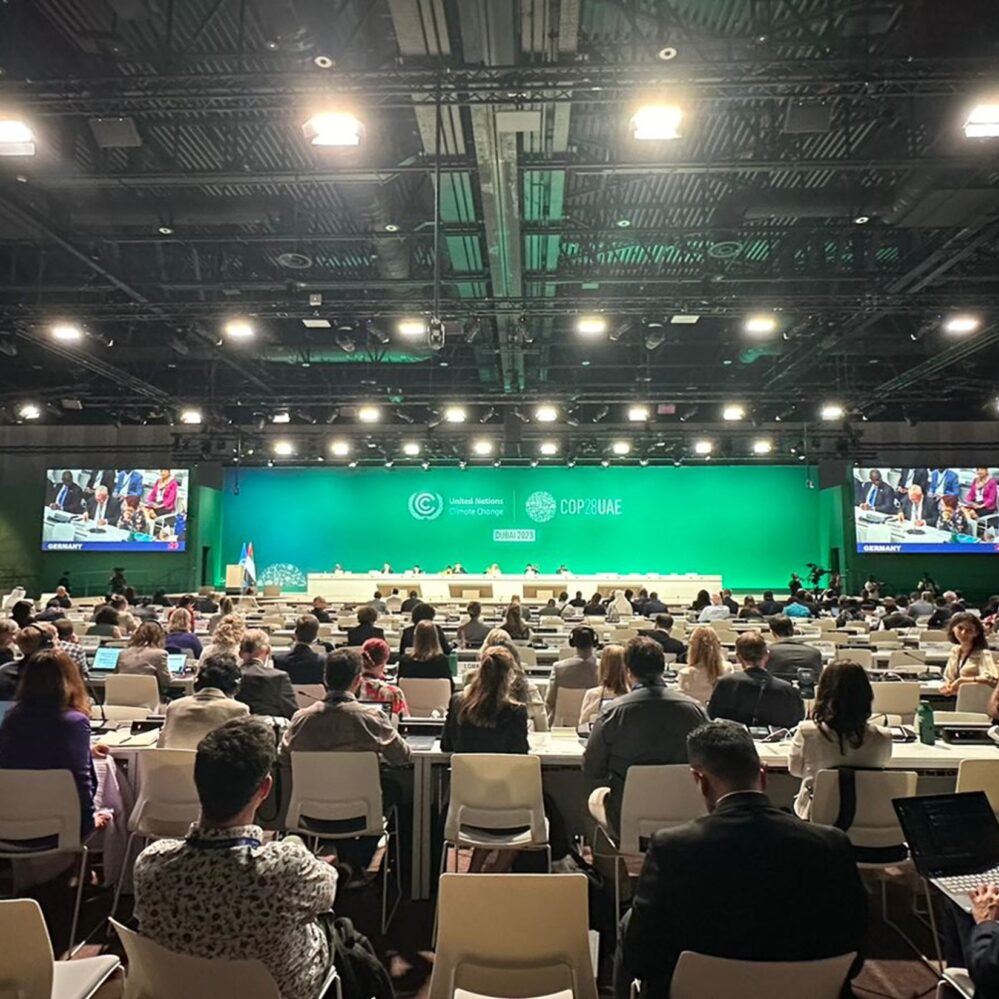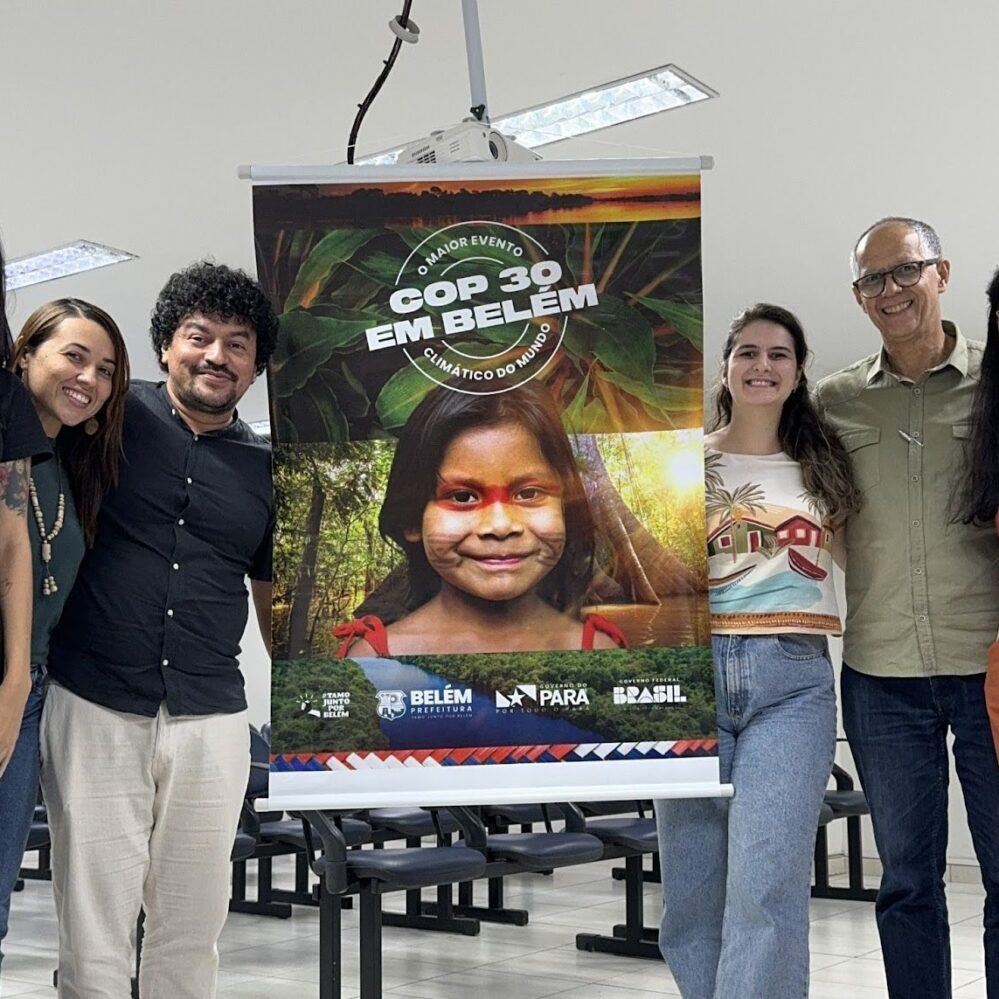The meeting, which included ICLEI as one of the organizers, was an opportunity to discuss climate federalism and the role of subnational governments at COP30.
The meeting “Brazil Towards COP30: Multilevel Dialogue in Focus” took place on Thursday afternoon (14/11) as part of the COP29 program and was attended by Ana Toni, Secretary for Climate Change at the Ministry of the Environment and Climate Change, and Ambassador Lilian Chagas, Director of the Climate Department at the Ministry of Foreign Affairs. The meeting, organized by ICLEI South America, the National Front of Mayors (FNP), the Brazil Climate Centre (CBC) and the Green Brazil Consortium, also brought together representatives of Brazilian sub-national governments and other partners. The aim was to promote collaboration between the different levels of government and strategic stakeholders to align priorities, share perspectives and strengthen Brazil’s commitment in the run-up to the 30th Conference of the Parties to the United Nations Framework Convention on Climate Change – COP 2025, in Belém do Pará.
Marjorie Kauffmann, Secretary for the Environment and Infrastructure of Rio Grande do Sul and Vice-President of ICLEI, and Axel Grael, Mayor of Niterói and Vice-President of the FNP were present and were able to make their points, as were Dario Saadi, Mayor of Campinas; Ana Luiza Gonçalvez, Secretary for the Environment and Sustainable Development of Pernambuco; Vanessa Grazziotin, Executive Director of the Amazon Cooperation Treaty Organization – ACTO; Rodrigo Corradi, Deputy Executive Secretary of ICLEI South America; Daniel Miranda, Coordinator of Institutional Relations and Projects at the FNP; William Wills, Technical Director of the CBC; as well as other representatives from the State Governments of Amapá and Mato Grosso do Sul.
The initial agenda of the meeting was the launch of the new Nationally Determined Contribution – NDC – which was presented by the Brazilian government on November 13 to the COP29 Presidency. The document deals with the Brazilian government’s new plan for reducing greenhouse gas emissions in line with the goals of the Paris Agreement. In this new version, there is a “Commitment to climate federalism between the Union, the States and the Municipalities”. Climate federalism means all levels of government working together against the impacts of climate change.
In this regard, the Brazilian government is reinforcing its commitment made last year at COP28 in Dubai. At that time, the country signed the Coalition for High Ambition Multi-level Partnerships for Climate Action – CHAMP, with the aim of improving cooperation with sub-national governments in the planning, financing, implementation and monitoring of climate strategies, in order to promote more effective climate action.
Marjorie Kauffmann pointed out the importance of prioritization axes, on the part of the Federal Government, to understand what is important to be done to support the NDC. She also commented on the need to promote capacity building for sub-national governments in order to achieve funding: “I hope that in Belém we can present this as an action to put Brazil in a position that suits all parties.”
Ana Toni took the opportunity to comment on the launch of a program to invest in training for states and municipalities, Adapta Cidades, which has the goal of providing technical training for 450 cities on climate adaptation plans. On this point, Ambassador Lilian Chagas emphasized that mapping vulnerabilities at the municipal or state level is crucial to supporting the achievement of climate-related goals at the national level.
The meeting represents just the beginning of the necessary dialog between Brazilian federal and subnational entities to prepare for COP30. ICLEI South America is proud to be part of the organization of the meeting together with partners FNP, CBC and Consórcio Brasil Verde. Preparing for the Conference must be a process that involves all federal entities and takes advantage of sub-national knowledge to develop public policies and concrete actions against the impacts of the current climate emergency.





